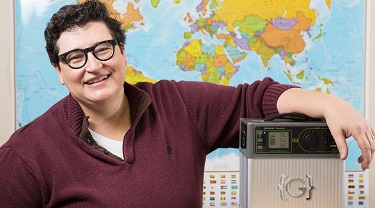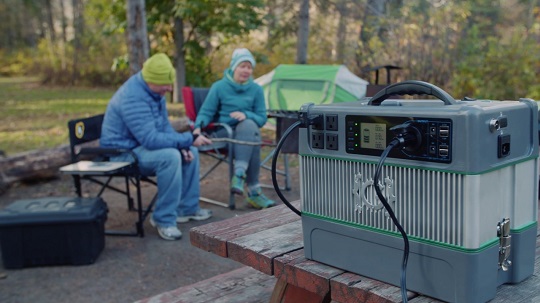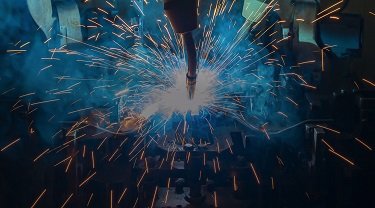
Exporting with Pride: Powered to grow
Some countries still have the death penalty for being gay, so there’s always some hesitation about where I can travel.
MyEDC account
Manage your finance and insurance services. Get access to export tools and expert insights.
Solutions
By product
By product
By product
By product
Insurance
Get short-term coverage for occasional exports
Maintain ongoing coverage for active exporters

Learn how credit insurance safeguards your business and opens doors to new markets.

See how portfolio credit insurance helped this Canadian innovator expand.
Guarantees
Increase borrowing power for exports
Free up cash tied to contracts
Protect profits from exchange risk
Unlock more working capital

Find out how access to working capital fueled their expansion.
Loans
Secure a loan for global expansion
Get financing for international customers
Access funding for capital-intensive projects

Find out how direct lending helped this snack brand go global.

Learn how a Canadian tech firm turns sustainability into global opportunity.
Investments
Get equity capital for strategic growth

Explore how GoBolt built a greener logistics network across borders.
By industry
Featured

See how Canadian cleantech firms are advancing global sustainability goals.

Build relationships with global buyers to help grow your international business.
Resources
Popular topics
Explore strategies to enter new markets
Understand trade tariffs and how to manage their impact
Learn ways to protect your business from uncertainty
Build stronger supply chains for reliable operation
Access tools and insights for agri-food exporters
Find market intelligence for mining and metals exporters
Get insights to drive sustainable innovation
Explore resources for infrastructure growth
Export stage
Discover practical tools for first-time exporters
Unlock strategies to manage risk and boost growth
Leverage insights and connections to scale worldwide

Learn how pricing strategies help you enter new markets, manage risk and attract customers.

Get expert insights and the latest economic trends to help guide your export strategy.
Trade intelligence
Track trade trends in Indo-Pacific
Uncover European market opportunities
Access insights on U.S. trade
Browse countries and markets
Get expert analysis on markets and trends
Discover stories shaping global trade
See what’s ahead for the world economy
Monitor shifting global market risks
Read exporters’ perspectives on global trade
Knowledge centre
Get answers to your export questions
Research foreign companies before doing business
Find trusted freight forwarders
Gain export skills with online courses
Get insights and practical advice from leading experts
Listen to global trade stories
Learn how exporters are thriving worldwide
Explore export challenges and EDC solutions
Discover resources for smarter exporting
About
Discover our story
See how we help exporters
Explore the companies we serve
Learn about our commitment to ESG
Understand our governance framework
See the results of our commitments
MyEDC account
Manage your finance and insurance services. Get access to export tools and expert insights.

Connie Stacey wears a lot of hats: She’s a wife, mother, successful inventor and a Canadian exporter of green technology. She’s appeared on Cottage Life and Dragon’s Den and will appear on CNBC’s The Advancements hosted by actor Ted Danson on July 28. She’s also a member of the LGBTQ2+ community who faces tough challenges when she travels on business.
Owner of Growing Greener Innovations, an Edmonton-based cleantech company that recently won $10,000 at the Alberta Innovates conference in the building smarter cities category, Stacey says that 90% of the time, being a business woman who happens to be LGBTQ2+, is a non-issue. “In Canada, we don’t discriminate and we tend to take it for granted that the world operates in a similar fashion—until we travel.”
She says that the more different you look, the more challenges you may encounter. “I fit the picture of a stereotypical lesbian. When I go outside of North America, I tend to get very aggressive looks and comments.”
She recalls a particularly difficult incident during a visit to India. “I was speaking at the Canada-India tech summit in Delhi in 2017. We’re in a five-star hotel, and the staff are chasing me out of the women’s washrooms. They kept saying this area is only for women, and I had to keep telling them, ‘But I am a woman!’ So, as I travelled, I had to be really conscious of my bathroom breaks.”
Some countries still have the death penalty for being gay, so there’s always some hesitation about where I can travel.
In 2013, when her twin boys were about three months old, everything in Stacey’s life revolved around one goal: getting more sleep—either for herself or her children. One day, as she was walking her finally napping infants by a house under construction, a generator roared to life. “I thought, ‘If you wake these babies up, I’m going to lose it,’ ” she recalls.
But the incident gave her an idea. Since combustion-engine generators are so loud and bad for the environment, why couldn’t she make a better generator?
Relying on her 20 years of experience in technology and business, she founded Growing Greener Innovations, which has a patented lithium ion battery-powered generator called the Grengine. It’s silent, has no emissions, and is more durable and lightweight than other battery-powered generators.
“I talked to people in the trades and they said they would love a battery-generated system just for the silence.”

Similar to Lego building blocks, the Grengine’s components can be swapped in and out. “That allows us to create micro-grids of any size, anywhere, without a technician,” she explains. “That means it’s ultra-low cost, with super-rapid deployment, and incredibly flexible, so you can scale it up or down.”
The Grengine’s smart-switch technology can also help the user save on electricity costs. When electric rates are lower during times of low consumption, the battery charges itself; during costlier high-peak consumption periods, it stops charging and uses the stored electricity. This way, the user only buys electricity at the lower rate.
Although it hasn’t officially launched yet, there are already people on a waiting list for the Grengine Smart Switch in primarily two markets:
“The commercial or industrial sector will be our biggest volume, and we’re getting calls from all over the place,” says Stacey. “We’re doing a lot of quotes right now for Mexico and the Middle East, where the grid is insufficient or unreliable for the load. We’re a small business that wants to grow and our plan is to first grow south into the U.S., Mexico, and the northern part of South America.”
To do that, the busy working mom needs to travel often across the globe, which is not always easy when you’re LGBTQ2+, she says.
“Some countries still have the death penalty for being gay, so there’s always some hesitation about where I can travel. Chances are I would send one of my team rather than go myself to a rural area in the Middle East. Women, in general, have more challenges there, and on top of that, I have very short hair and I tend to wear more masculine clothing. Sometimes, people don’t know how to respond to that.”
When travelling to places that are less supportive of LGBTQ2+ rights, Stacey says borders don’t necessarily matter as much as regions. “There tends to be more diversity and far more different types of people in cities, so there’s typically more acceptance than in rural areas.
“Very rarely do I have any issues in North America or Mexico. Every once in a while, I can tell someone is trying to figure out, ‘Is that a man or a woman?’ But then I speak and you can see the recognition is made and it’s all fine. But in India, Indonesia, China, it’s definitely more challenging. So, these are things to take into consideration.”
Last year, Global Affairs Canada (GAC) held its first LGBTQ2+ trade mission to Philadelphia in partnership with the Canadian Gay & Lesbian Chamber of Commerce (CGLCC). These missions, coupled with the information and advice provided by Export Development Canada (EDC), are invaluable, says Stacey. “You get support and that official emblem behind you, which garners you a lot of respect. It makes it easier to travel, and to be honest there are some places I simply wouldn’t go unless it was in conjunction with a trade mission or that the GAC was involved.”
For LGBTQ2+ business people who are starting to export, Stacey also advises that they reach out to the Trade Commissioner Service (TCS) for their expertise.
“Their knowledge of what markets are going to be a good fit for your product alone makes it worthwhile. Before going to Indonesia, talking to a trade commissioner and EDC helped us understand how trade worked there and the rules and regulations, so we could make better business decisions. It feels much more comfortable to be with someone who’s familiar with the market.”
Part 1 of 3 in series
Exporting with PrideFrom languages to luncheons, navigating business culture on the global stage can be a challenge. Join the experts and learn how to close deals without crossing cultural boundaries.

Learn about key sectors, market trends, and how EDC supports Canadian businesses expanding to Europe.

An EDC economist helps you understand the different country risks at play.

With EDC’s support, this chemical analysis and measurement company has taken on international contracts from all over the world.

See how the heavily integrated supply chain between the Canada-U.S. automotive industries benefit both sides of the border.

“Keep calm and trade on” appears to be the motto for these Canadian companies, as they reveal their strategies for dealing in the U.S. market.